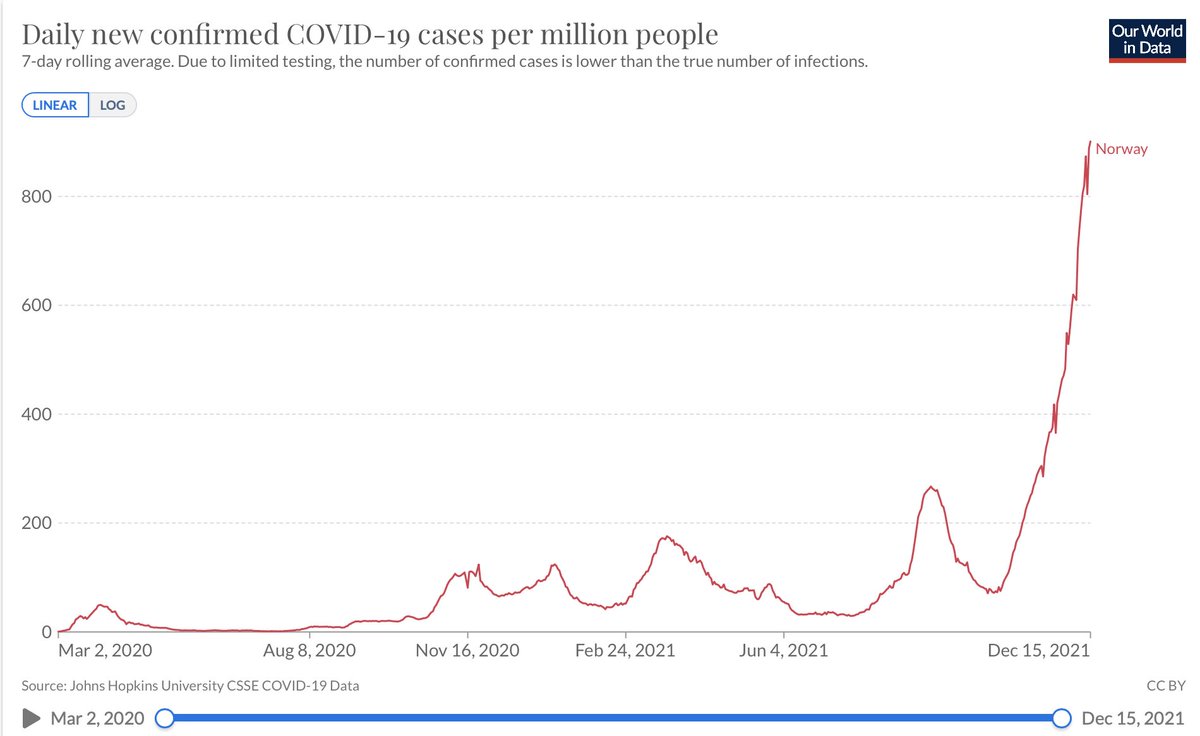
Germany’s new expert council weighs in on #omicron:
"Due to the simultaneous, extreme number of patients, a considerable overload of the hospitals is to be expected - even in the unlikely case of significantly weakened disease severity compared to the Delta variant"
"Due to the simultaneous, extreme number of patients, a considerable overload of the hospitals is to be expected - even in the unlikely case of significantly weakened disease severity compared to the Delta variant"
They call for:
- further measures to reduce contacts
- enforcing current measures
- intensifying vaccination and booster campaigns
"all models show that booster vaccinations alone do not adequately contain the omicron wave, but that additional contact restrictions are necessary"
- further measures to reduce contacts
- enforcing current measures
- intensifying vaccination and booster campaigns
"all models show that booster vaccinations alone do not adequately contain the omicron wave, but that additional contact restrictions are necessary"
Beyond political decisions, "the population must be called upon to actively control infections. This includes avoiding larger gatherings, the consistent, preferred wearing of FFP2 masks, especially indoors, as well as the increased use of rapid tests at gatherings…"
"Particularly vulnerable groups require increased protective measures through high-frequency testing and FFP2 masks.
In all decisions, interests of particularly stressed and vulnerable groups, such as children, young people or those in need of care, must be given top priority."
In all decisions, interests of particularly stressed and vulnerable groups, such as children, young people or those in need of care, must be given top priority."
The experts “expect enormous challenges in the coming weeks and months, which will require joint and timely action from all.
In addition to consistent action, clear explanations are crucial."
In addition to consistent action, clear explanations are crucial."
"The omicron wave hits a population that has been exhausted by a nearly two-year pandemic and its control, and in which massive tensions are evident on a daily basis.”
Communication "with clear explanations of the new risk situation and the resulting measures is essential."
Communication "with clear explanations of the new risk situation and the resulting measures is essential."
The committee of 19 experts includes scientists like @ViolaPriesemann, @CorneliaBetsch, @alena_buyx, @Sander_Lab and @c_drosten. They unanimously agreed to this text.
The entire document in German:
bundesregierung.de/resource/blob/…
The entire document in German:
bundesregierung.de/resource/blob/…
@ViolaPriesemann @CorneliaBetsch @alena_buyx @Sander_Lab @c_drosten (My two cents:
Seems in line with the conclusions that countries sightly ahead of us in the omicron wave are reaching.
There is a lot of uncertainty, but by the time we’re certain it will be too late.
Good to see communication feature prominently in the opinion. Huge challenge!)
Seems in line with the conclusions that countries sightly ahead of us in the omicron wave are reaching.
There is a lot of uncertainty, but by the time we’re certain it will be too late.
Good to see communication feature prominently in the opinion. Huge challenge!)
@ViolaPriesemann @CorneliaBetsch @alena_buyx @Sander_Lab @c_drosten (Also worth remembering that Germany is in a worse position than countries like Norway, Denmark or UK in terms of immunity given comparatively low vaccination rate and low levels of immunity from infections.
Boostering quite fast though.)
Boostering quite fast though.)

• • •
Missing some Tweet in this thread? You can try to
force a refresh







